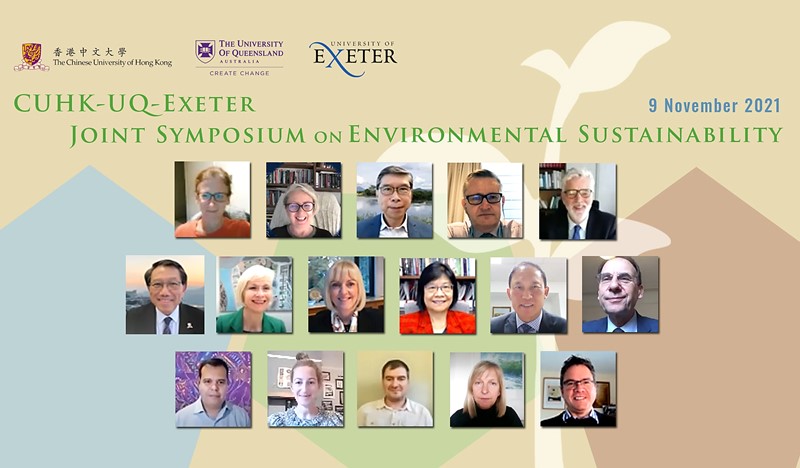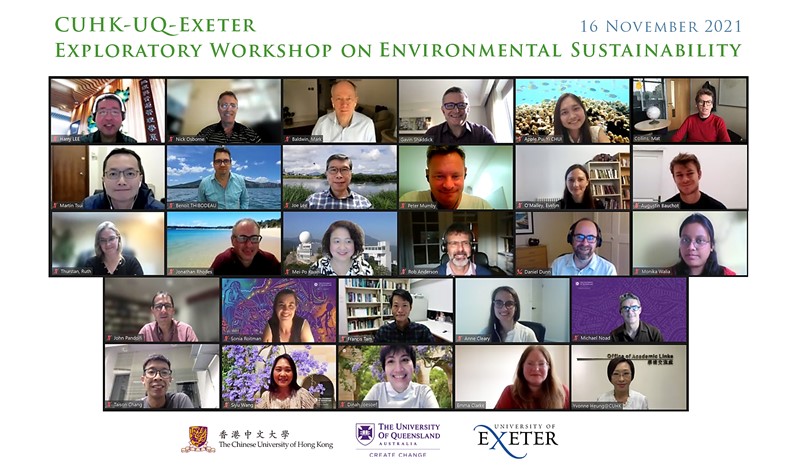
Global partnership for sustainable development

Showcasing joint work on environmental sustainability during the symposium.
In November, the world leaders convened in Glasgow for the COP26 climate summit to find ways to work together to address one of the greatest global challenges of our time. As creators of knowledge and incubators of innovation, it is vital that universities work together to change the destructive course of climate change. It is therefore timely that CUHK, together with The University of Queensland (UQ) in Australia and the University of Exeter (Exeter) in the UK, took stock of its joint work in environmental sustainability and reaffirmed its commitment to the partnership at a joint public symposium on 9 November.
CUHK, UQ, and Exeter are world-leading in environmental science with a strong dedication to sustainable development. The three universities have separately established the CUHK-Exeter Joint Centre for Environmental Sustainability and Resilience (ENSURE) and the QUEX Institute (QUEX) to tackle challenges emerging from the changing environment and its influence on planetary health. During the symposium, researchers from the three universities showcased the works of ENSURE and QUEX, including projects on adopting gene drive approach for climate adaptation and conservation, coastal ecosystems in megalopolises, impact of microplastics contamination on the environment and human health, and population exposure to air pollutants.
The symposium was officiated by Prof. Rocky S. Tuan, Vice-Chancellor of CUHK; Prof. Deborah Terry, President and Vice-Chancellor of UQ; and Prof. Lisa Roberts, Vice-Chancellor and Chief Executive of Exeter, and a panel discussion on the role of universities and global partnership in solving global issues was hosted by the vice presidents of the three universities. The Co-Directors of ENSURE including CUHK Institute of Environment, Energy and Sustainability’s Prof. Joe Lee were among the speakers at the symposium.
Prof. Mai-har Sham, Pro-Vice-Chancellor of CUHK, commented, ‘On complex global challenges such as the pandemic and climate change, we must work together so we can identify common issues and contribute our complementary expertise. This way, we could solve the problems more effectively and create greater impact.’

Researchers from the three universities share their latest research and explore collaborative projects.
The symposium attracted some 120 participants from around the world. It was a prelude to an exploratory workshop on 16 November that brought together close to 40 researchers from the three universities in the fields of biology, humanities, earth and environmental sciences, marine science, mathematics, and public health to discuss possible collaborations in areas such as ecosystem services, climate modelling, and environment and mental health.
For more information and to revisit the events, please visit the Office of Academic Links’ website.